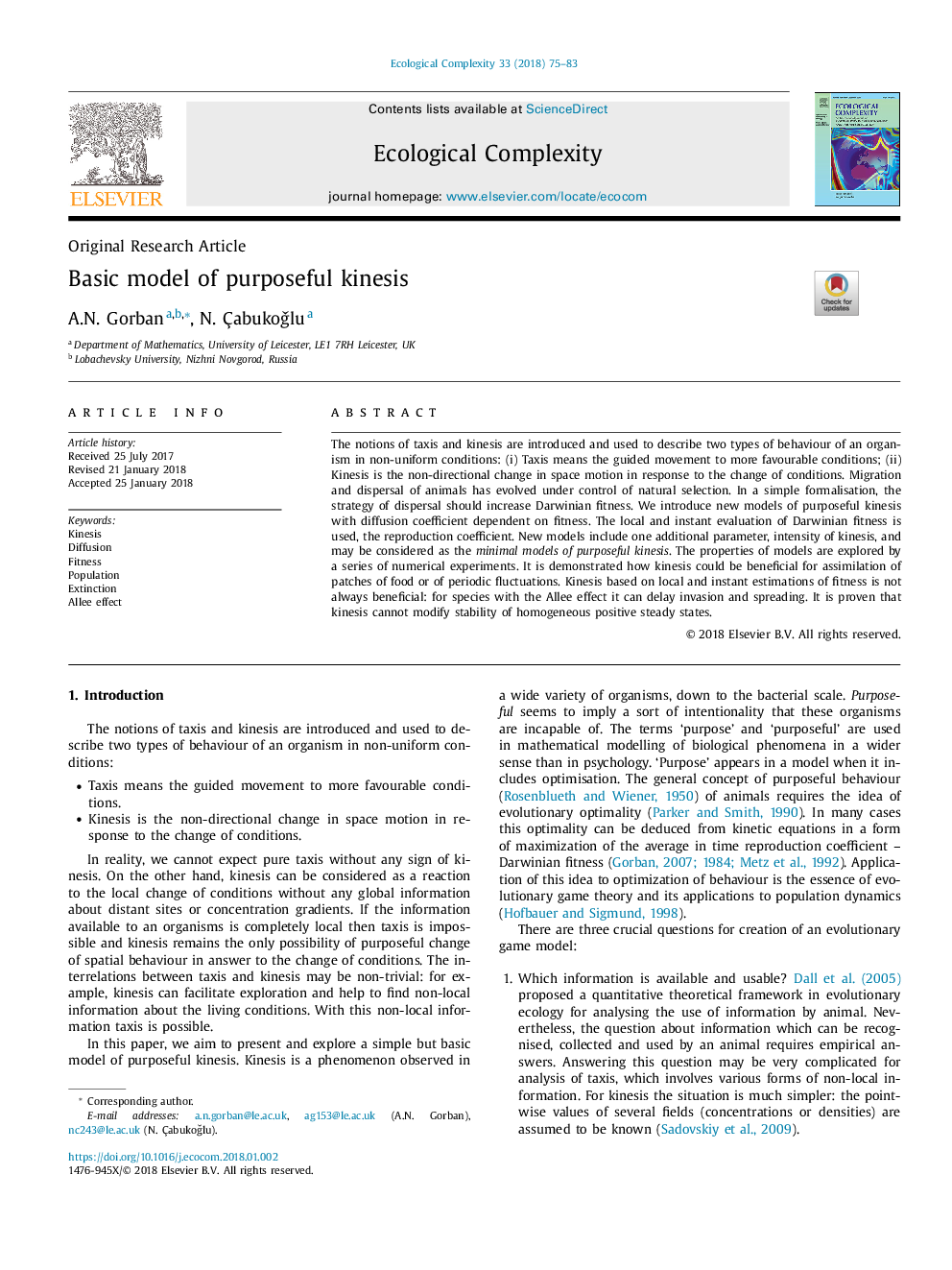| Article ID | Journal | Published Year | Pages | File Type |
|---|---|---|---|---|
| 8844849 | Ecological Complexity | 2018 | 9 Pages |
Abstract
The notions of taxis and kinesis are introduced and used to describe two types of behaviour of an organism in non-uniform conditions: (i) Taxis means the guided movement to more favourable conditions; (ii) Kinesis is the non-directional change in space motion in response to the change of conditions. Migration and dispersal of animals has evolved under control of natural selection. In a simple formalisation, the strategy of dispersal should increase Darwinian fitness. We introduce new models of purposeful kinesis with diffusion coefficient dependent on fitness. The local and instant evaluation of Darwinian fitness is used, the reproduction coefficient. New models include one additional parameter, intensity of kinesis, and may be considered as the minimal models of purposeful kinesis. The properties of models are explored by a series of numerical experiments. It is demonstrated how kinesis could be beneficial for assimilation of patches of food or of periodic fluctuations. Kinesis based on local and instant estimations of fitness is not always beneficial: for species with the Allee effect it can delay invasion and spreading. It is proven that kinesis cannot modify stability of homogeneous positive steady states.
Related Topics
Life Sciences
Agricultural and Biological Sciences
Ecology, Evolution, Behavior and Systematics
Authors
A.N. Gorban, N. Ãabukoǧlu,
